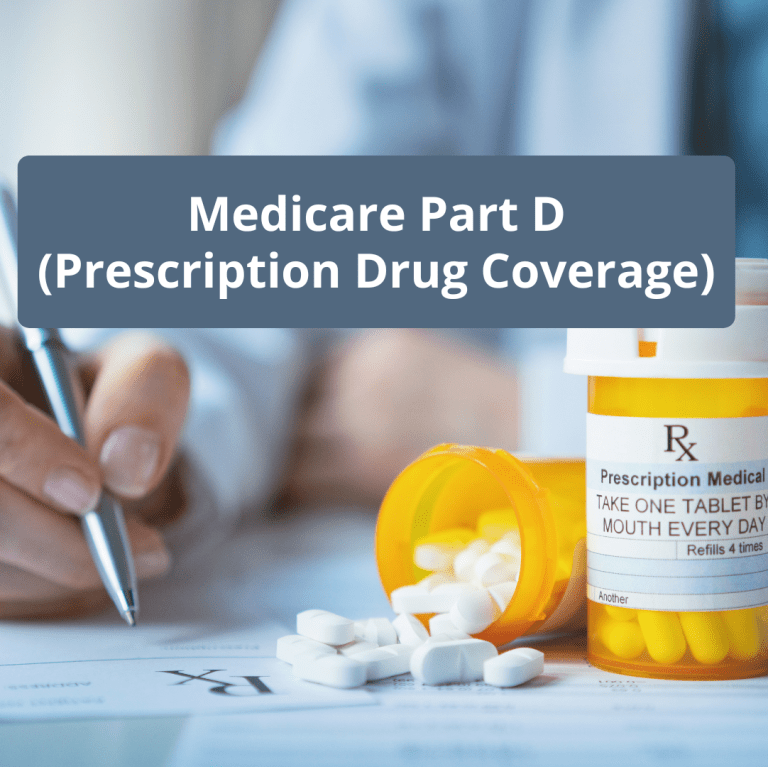Key Takeaways
-
If you’re living on a fixed income, Medicare in 2025 may still cover a wide range of mental health services, including therapy, psychiatric care, and medications.
-
Understanding which parts of Medicare apply to your mental health needs—and how to minimize out-of-pocket costs—can make accessing care far more manageable.
Medicare Isn’t Just for Physical Health
Mental health is just as important as your physical health, and Medicare acknowledges that. In 2025, Medicare provides coverage for a wide range of mental health services, including therapy sessions, psychiatric evaluations, medication management, and preventive screenings. If you’re on a fixed income, knowing how to use your Medicare benefits wisely can make these services more affordable.
Medicare coverage for mental health is divided across its main parts:
-
Part A handles inpatient mental health care in a hospital.
-
Part B covers outpatient services like therapy and psychiatric visits.
-
Part D includes coverage for prescription medications, including many used for mental health.
-
Medicare Advantage (Part C) plans offer at least the same benefits as Parts A and B, sometimes with additional services.
Understanding which part covers what is essential so you can access the right support without paying more than necessary.
Inpatient Mental Health Care Under Part A
Part A of Medicare helps cover mental health treatment when you’re admitted to a general or psychiatric hospital. As of 2025, here’s what this includes:
-
Semi-private room and meals
-
Nursing care
-
Medications and therapies administered during your stay
-
Professional services from doctors, psychiatrists, and social workers
Keep in mind:
-
Medicare caps psychiatric hospital care at 190 days in a lifetime.
-
General hospital mental health stays are not subject to this lifetime limit.
You’ll be responsible for a deductible of $1,676 per benefit period in 2025. If your stay extends beyond 60 days, daily coinsurance costs apply and increase the longer you stay. These are important numbers to keep in mind if your budget is limited.
Outpatient Therapy and Counseling with Part B
Most routine mental health care happens outside a hospital, and that’s where Medicare Part B comes in.
Covered services include:
-
Individual and group therapy sessions
-
Diagnostic evaluations
-
Medication management by a psychiatrist
-
Telehealth therapy sessions
-
Partial hospitalization programs (PHPs)
-
Intensive outpatient programs (IOPs)
-
Preventive depression screenings
In 2025, after meeting the annual Part B deductible of $257, you typically pay 20% of the Medicare-approved amount for most outpatient mental health services.
New in 2025: Expanded Provider Types
Medicare now covers services provided by licensed marriage and family therapists (LMFTs) and mental health counselors (MHCs). This has expanded the pool of accessible providers—great news if you’ve struggled to find someone who accepts Medicare.
But you still need to confirm that the provider accepts Medicare assignment. This means they agree to accept the Medicare-approved rate and bill Medicare directly. Not all therapists do this, and using one who doesn’t could lead to surprise bills.
Prescription Drug Coverage for Mental Health
If you take medication for conditions such as anxiety, depression, or bipolar disorder, Medicare Part D is critical.
What you should know in 2025:
-
The maximum deductible is $590, though some plans have lower deductibles.
-
Once you meet your deductible, you pay a copayment or coinsurance during the initial coverage phase.
-
After your out-of-pocket drug spending hits $2,000, you enter the catastrophic coverage phase, where you pay nothing for covered prescriptions for the rest of the year.
To minimize costs, use a plan that includes your medications on its formulary (list of covered drugs). It’s worth reviewing your plan each year during the October 15 to December 7 Open Enrollment Period to ensure your mental health medications remain covered.
Medicare Advantage: One Card, Multiple Services
Many people on fixed incomes choose Medicare Advantage plans because they combine Part A, Part B, and often Part D coverage in one plan.
Medicare Advantage plans must cover:
-
Inpatient and outpatient mental health services
-
Emergency psychiatric care
-
Therapy with covered provider types
Some plans may also include extra benefits like:
-
Care coordination
-
Wellness programs or support groups
-
Behavioral health telemedicine platforms
However, keep in mind:
-
Most plans have networks, so you may need to see in-network providers
-
You might need prior authorization for services like partial hospitalization
If you’re comparing costs while on a tight budget, make sure you look at copayments, coinsurance, and maximum out-of-pocket limits, which can affect your overall spending.
Special Help if You’re Struggling Financially
If you’re living on a fixed income, you may qualify for programs that reduce or eliminate some of your Medicare costs.
These include:
Medicare Savings Programs (MSPs)
There are four MSPs that can help with Part A and B costs:
-
Qualified Medicare Beneficiary (QMB)
-
Specified Low-Income Medicare Beneficiary (SLMB)
-
Qualifying Individual (QI)
-
Qualified Disabled and Working Individuals (QDWI)
Depending on your income and assets, you might receive help paying for premiums, deductibles, coinsurance, and copayments.
Extra Help with Part D
This program helps with:
-
Monthly premiums
-
Annual deductibles
-
Coinsurance and copayments
It also offers protection from the Part D late enrollment penalty. In 2025, you automatically qualify for Extra Help if you:
-
Are enrolled in Medicaid
-
Receive Supplemental Security Income (SSI)
-
Participate in an MSP
If you’re not automatically enrolled, you can apply through the Social Security Administration.
How to Find the Right Provider
Even with all the benefits Medicare offers, access still depends on finding a provider who accepts Medicare and is accepting new patients. This can be tricky, particularly in rural areas.
Here’s how to increase your chances:
-
Use Medicare.gov’s provider finder tool to filter by mental health providers who accept Medicare
-
Call your local Area Agency on Aging (AAA) for referrals
-
Consider telehealth if in-person options are limited
-
Ask providers if they accept Medicare assignment before booking
If you’re in a Medicare Advantage plan, check the plan’s network directory or call the plan’s customer service line for help locating behavioral health providers.
Don’t Let Stigma or Cost Stop You
Many older adults delay seeking help because of stigma, uncertainty about coverage, or concerns about cost. But waiting can make problems worse.
Depression, anxiety, grief, and other mental health concerns are not part of “normal aging.” You deserve support, and Medicare now makes that support easier to access.
Being on a fixed income shouldn’t be a barrier to getting the mental health care you need. By understanding your Medicare coverage and taking advantage of available financial support programs, you can take that first step toward feeling better.
Start with a Conversation
The Medicare mental health benefits available in 2025 offer a solid foundation—but only if you know how to use them. Whether you’re concerned about affordability, finding the right provider, or getting prescription medications covered, there are paths forward.
Speak with a licensed agent listed on this website who can help you:
-
Understand your Part A, B, D, or Advantage plan coverage
-
Explore Medicare Savings Programs and Extra Help
-
Choose a plan that fits your budget and mental health needs
You don’t have to figure it all out alone. Support is available—professionally, medically, and financially.









